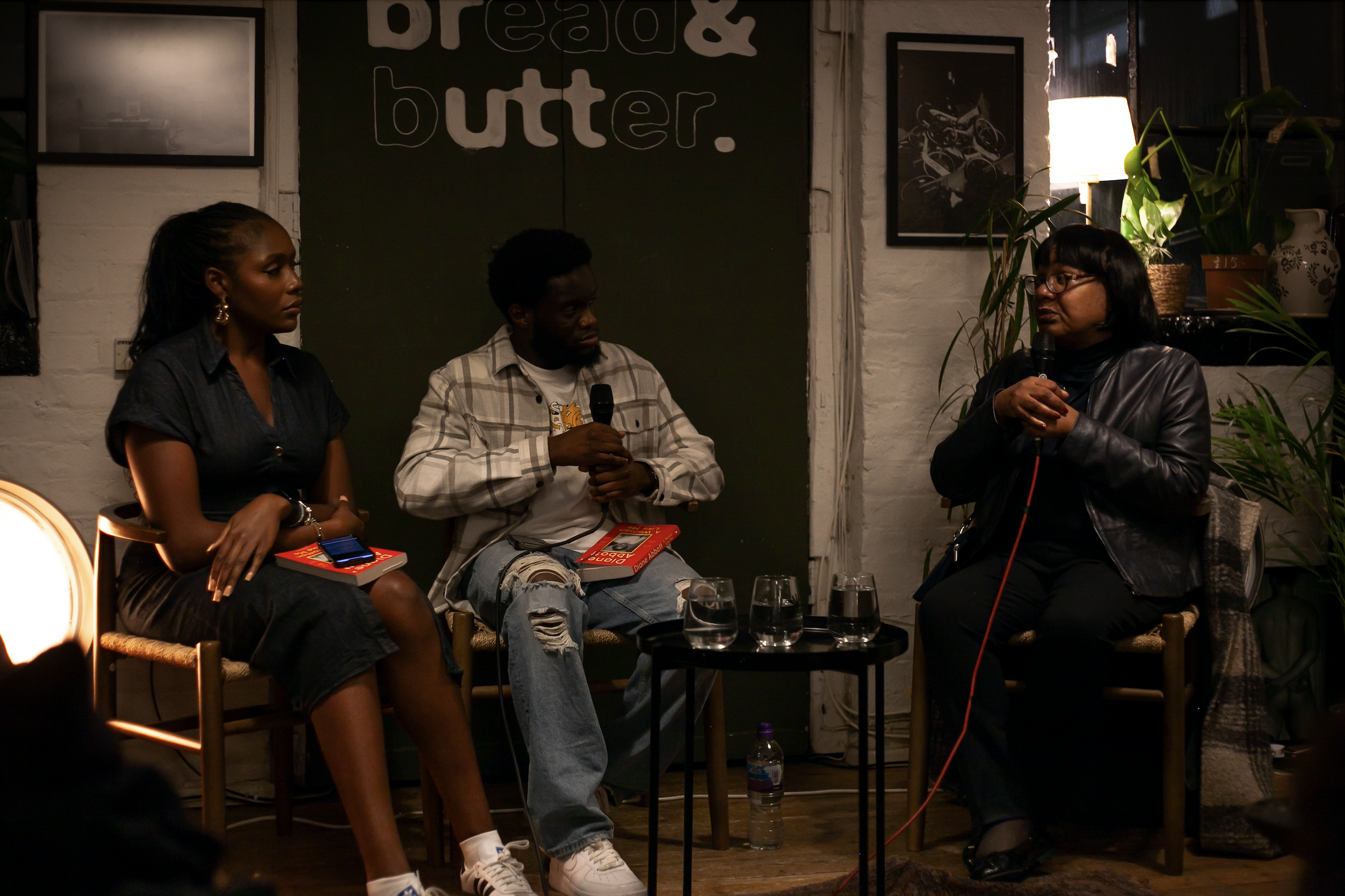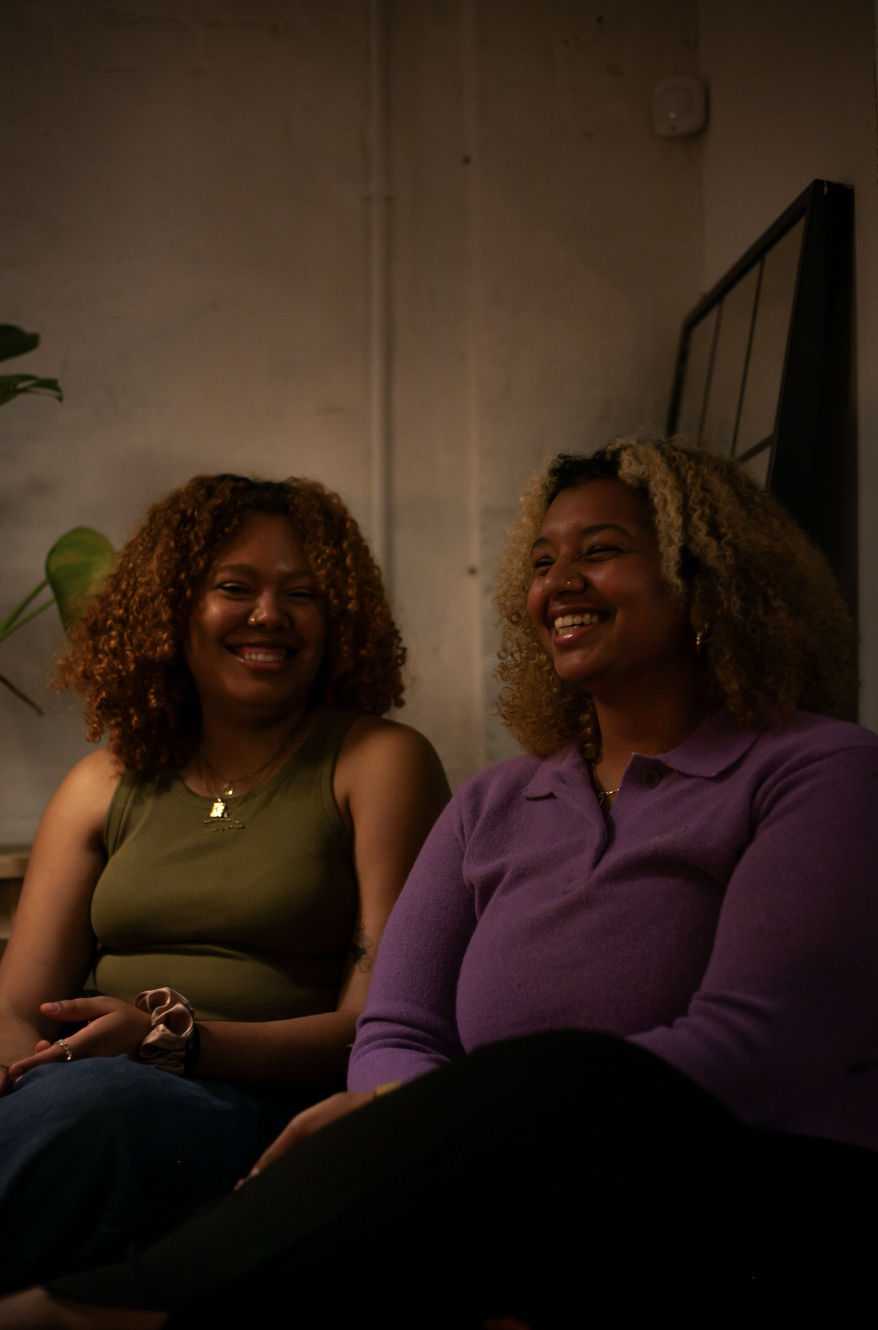A Night with a Legend: Diane Abbott in Conversation, Presented by Dope Readers Club
Photography by Ola Fisayo
On a cool Shoreditch evening, surrounded by women and men of all ages eager to hear from one of the most influential voices of the past decade. The Dope Readers Club hosted something truly special: an intimate, inspiring night with a woman who’s not only made history but continues to inspire future chapters of it - the legendary Diane Abbott. More than just a political figure, Diane spoke as a storyteller, truth-teller and a trailblazer. She spoke with grace, grit and undeniable presence, touching on everything from political resistance to personal resilience, identity, Black womanhood and the future we’re all trying to create.
Dope Readers Club created more than a platform – they curated a cultural moment. One that reminded us how literature, conversation and community can spark real change. It was a gathering rooted in truth, legacy, inspiring collective power. If you were there, you left feeling inspired, hopeful, knowing no mountain is too big. If you weren’t? Trust us – you’ll want to pick up her book ‘A Woman Like me’ to be transformed by her will power, self belief and un-denying ability to fight against all odds.
The evening opened with Diane discussing current affairs and the state of the political world. She touched on the rise of right-wing governments across Europe, while also offering hope and confidence that the tide will turn again. When asked about identity politics and the women who have inspired her, she nodded to Angela Davis and shared that a younger Diane would have been deeply inspired by Michelle Obama.
Photography by Ola Fisayo
The First
Diane then took the crowd down memory lane, sharing key moments from her childhood. She spoke proudly of being of Jamaican heritage and child of the Windrush generation, she also described herself as a proud West London girly. She briefly touched on her time as a Cambridge student — a moment that stood out even more when I later read in her book that she was the only Black student in the history faculty at the time and the first in her family to attend university.
Diane was no stranger to being the ‘first’ or the ‘only’ in many spaces. In primary school, she and her brother were the only Black children. At Harrow County Grammar School for Girls, she was the only Black girl. After a school trip to Cambridge, she made the bold decision to pursue a place at the university — a place that, at the time, saw very few Black women like her and where systemic barriers were all too real. But Diane was daring. When she told her history teacher she wanted to sit the entrance exam for Cambridge, the response: "I don’t think you’re up for it." But Diane replied firmly: "But I do think I am up to it. And that is what matters, isn’t it?". That moment was just one of many that cemented her status as a trailblazer and a pioneering force.
Diane went on to proudly share that she was the first Black woman elected to the House of Commons in 1987. Hearing her background made it all the more clear why she places such importance on having Black women as part of her staff.
Community
Her cultural identity was a major theme throughout the night. Diane spoke about the importance of looking out for one another, reflecting on how the older generation was much more tight-knit — noting that the struggles they faced often brought them closer together.
She highlighted how, in predominantly white spaces, Black people can sometimes become shy or hesitant to connect with one another, almost feeling a sense of awkwardness about coming together. In contrast, the courage and unity of the older generation was a recurring theme in her talk, as Diane emphasised how they consistently stood together in solidarity.
One powerful example of this communal mindset was the ‘pardner hand’ system — a traditional form of community saving, widely practiced not only in the West Indies but also across African cultures. Built on mutual trust, this system became essential for survival, especially for people like Diane’s parents, who were often denied access to white-owned banks at the time. Diane transported us back to a time when racial tensions in Britain were extremely high and shared a story that highlighted the importance of allies. She described how racist groups, such as the Teddy Boys, would roam Black neighbourhoods, knocking on doors and violently attacking residents simply for being Black. In 1951, Diane’s father bought a house in Paddington, having raised the deposit through the pardner hand system. He rented the basement to an Irish family, whose father — affectionately known to Diane as Uncle Jimmy — developed a strong bond with her. Smiling as she recalled the memory, Diane shared how she would often have one breakfast with her own family and a second with her Irish family downstairs.
Amid a climate of hostility toward migrants and racist slogans like ‘Keep Britain White’ plastered across the streets, one day a group of racist hooligans banged on their door. Uncle Jimmy stood firm, turned to Diane’s parents, and said, “They are not getting our Diane.” He opened the door himself, assuming he was the homeowner, the intruders left without incident.
Photography by Ola Fisayo
Education
The second part of the evening focused heavily on Diane’s thoughts and experiences around education. She shared that education gives you confidence, helps you believe in yourself and gives you the tools to move forward. She told a heartfelt anecdote that not only revealed the injustices she faced, but also highlighted her strength and resilience. As a child, Diane was an exceptionally gifted writer, in primary school, her work was regularly put on the board as the gold standard. However, in grammar school, the celebration of a Black girl’s excellence wasn’t as forthcoming.
One day, a teacher read out everyone's grades and returned their essays—except Diane’s. When the class was dismissed, Diane approached the teacher and asked why her grade hadn’t been read. The teacher replied, “Where did you copy this essay from?” Humiliated, Diane said she consciously held herself back from writing as well as she could for the rest of that class. She shared this moment as a powerful reminder to never let others define your potential—to never allow someone to pigeonhole you. Education, she explained, plays a crucial role in shaping a young person's confidence and believing in yourself is essential—no teacher should ever make you feel like you can’t achieve something.
Diane also spoke about the community’s role in education, reminiscing about Saturday schools during her youth—spaces where Black children were taught their history and given the extracurricular support they weren’t getting in mainstream schools. She expressed her belief that with greater unity, we can uplift one another and build stronger communities for future generations — because even when progress is made, we’re still not at the top.
Representation
The issue of exclusion and the prison pipeline among Black boys came up and Diane really emphasised the need for more Black male teachers. Right now, there’s a serious cultural disconnect in schools. Black pupils are being failed because there’s a lack of relatability. The rate of exclusions—especially among Black boys—is way too high.
Diane shared an example that highlights how Black children are continuously being let down: a 14-year-old Black girl who was strip-searched by the police. She spoke about the level of humiliation and psychological damage that was caused. When it came to the Met Police, Diane wasn’t optimistic. She pointed out that a big issue is recruitment—many officers don’t even live in London. That leads to a major cultural clash, because these officers often don’t understand the nuances of the communities they’re policing, or how to relate to young Black men and women at all.





Photography by Ola Fisayo
Tact
When asked about her opinion on Kemi Badenoch, a British politician and Leader of the Conservative Party, and someone who many Black Brits find controversial, Diane kept it classy and responded: “I don’t believe in criticising black women publicly…but had you told me a couple years ago that a black women who be the face of the conservative party I would not believe you.”
Resilience
The evening wrapped up with Diane reminding the crowd that you have to be firm without being aggressive. She embodies this well and this resonated particularly in her book when she interviewed for a job at the Home Office. Mary Warnock, the interviewer, opened with: “Why do you want to be a civil servant?” Diane's response? “Because I want power”. Mary later revealed to her son that this was the best answer.




